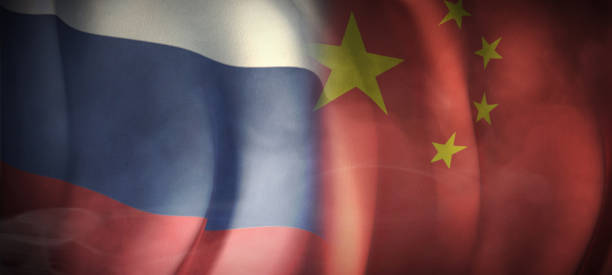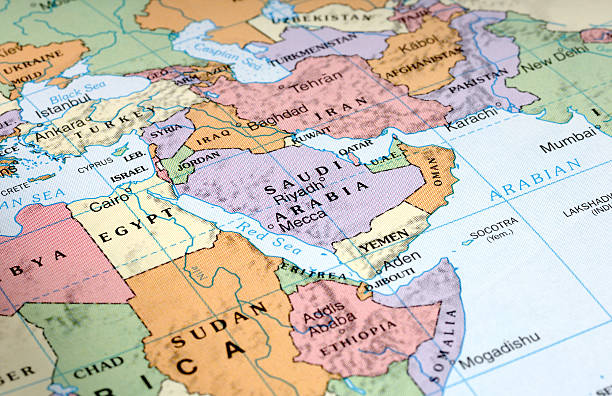On October 7, 2023, a comment by Russia’s Foreign Ministry Spokeswoman Maria Zakharova stated that the conflict, which has continued for 75 years, cannot be resolved by force and can be settled exclusively by political and diplomatic means, by engaging in a full-fledged negotiation process based on the well-known international legal framework stipulating the establishment of an independent Palestinian state within the 1967 borders with a capital in East Jerusalem that co-exists with Israel in peace and security.
In the following days and weeks Foreign Minister Sergey Lavrov confirmed Russia’s condemnation of the October 7 massacre and called for a measured response in full accordance with international humanitarian law. Last week, during a news conference on Russia’s foreign policy performance in 2023, he also called Israel “a long-time partner”. He said Russia was the first country to recognize Israel’s independence and about 2 million Israeli citizens also hold Russian passports and have come from Russia.
On various occasions, Mr. Lavrov elaborated on Russia’s efforts for a UN Security Council resolution for a ceasefire in Gaza blocked by the US. He mentioned failed American interventions in Vietnam, Afghanistan, Iraq, Libya, and Syria, and said that none of these places is better off than when they interfered under the false pretext. He questioned the US military presence in Iraq and Syria. He blamed the West for the failure to bring an end to the Israeli-Palestinian conflict.
In brief, the war in Gaza provided Moscow with an opportunity to target the West, particularly the US, to highlight the inconsistencies of their foreign and security policies. Moscow’s diplomatic exchanges were mostly confined to regional countries. In last week’s conference Mr. Lavrov, referring to Russia’s diplomatic activity, said, “Considering our immediate environs, it certainly includes the Middle East countries, Iran, Turkey, Saudi Arabia, the UAE, and Qatar.” [i]
On January 1, Saudia Arabia, Egypt, the United Arab Emirates, Iran, and Ethiopia joined the ranks of the BRICS group and Russia assumed the BRICS chairmanship. Moscow now refers to the “Global Majority” instead of the “Global South”. No matter how it is worded, the term represents a fall in international support for the US and Europe.
On October 9, the Chinese Foreign Ministry spokesman stated that China is closely following the escalating conflict between Palestine and Israel and condemns acts that harm civilians. “As a friend to both Israel and Palestine,” he went on, “what we hope to see is the two countries living together in peace and enjoying security and growth together. The key to achieving that lies in the realization of the two-state solution and establishment of an independent State of Palestine.” In the following days and weeks senior Chinese officials advised restraint, and dialogue and called for corridors for humanitarian assistance. Some referred to the three-point proposal for the settlement of the Palestinian question during which President Xi Jinping had put forward his talks with visiting Palestinian President Mahmoud Abbas in Beijing on June 14, 2023.[ii]
The proposal says that the fundamental solution lies in the establishment of an independent state of Palestine, it envisages stepped-up assistance to the people of Palestine and proposes a large-scale, more authoritative, and more influential international peace conference should be convened to create conditions for the resumption of peace talks.
Chinese officials also underlined that military power is not a solution to the question, and combating violence with violence will only lead to a vicious tit-for-tat circle and create obstacles to the political settlement of the Palestinian question.
In brief, Beijing, keeping up with the tradition, has been more reserved in its statements but left no doubt as to its support for the two-state solution, a ceasefire, and unhindered humanitarian assistance to Gaza. It has aimed to show that China was a global power advocating peace. And its lines of communication with regional countries and Washington remained open.
On October 18, ten days after the Hamas onslaught, President Putin visited China for the Third Belt and Road Forum for International Cooperation (BRF) and met with President Xi. For both leaders, this was an occasion to reiterate that “their ever-lasting good neighborliness and mutually beneficial cooperation is not an expediency, but a long-term commitment.”[iii] Bilateral trade between China and Russia has now reached 200 billion dollars. For both countries, a "multipolar" world order remains a recuyrrent theme.
To sum up, China is not engaged in a war, not unhappy to see the US engaged in problems away from the Indo-Pacific, but largely for economic reasons supports global stability. Russia is fighting a war against Ukraine and the West and focuses on furthering its cooperation with China, India, and the Global South. And the West led by the US, with a colonial past and a history of external interventions is fighting a war in Ukraine and half a war in the Middle East. They are continuing to lose ground in the Global South. Most unfortunately, their public discourse on respect for human rights and democracy is becoming less and less convincing and appealing.
Regarding Türkiye, it would be no exaggeration to say that our democratic decline and foreign and security policy mistakes, zigzags, U-turns, and extreme rhetoric have resulted in our diplomatic isolation. Ankara has lost its appeal.
Yesterday, the Turkish Parliament ratified Sweden’s NATO membership. Sweden’s application was presented to NATO Secretary General Stoltenberg in May 2022. For 20 months Ankara had dragged its feet. The people of Türkiye are entitled to an honest balance sheet of the Türkiye dimension of Sweden’s membership process but will not get one. Because this is only a sub-chapter of a bigger and continuing story between Türkiye and the US. It started on November 24, 2015, with the Turkish Air Force downing a Russian Su-24 military plane for having violated Turkish airspace for 17 seconds.[iv] And unfortunately, the Parliament’s approval of Sweden’s NATO membership will not be the end of the story.
Today Türkiye’s national agenda consists of two items: our economic downturn and the March 2024 municipal elections, the last exit to democracy. The experience of the last presidential election is no inspiration for this one because that was an unlosable election but the hapless opposition under a failed leadership managed to accomplish just that.
As for our economic woes, the following is from Mark Mazower’s book titled “The Greek Revolution, 1821 and the Making of Modern Europe”:
“There are no budget data for the 1820s – itself a symptom of the crisis facing the Ottoman state under Mahmud – but we do not need them to see what was happening. Central administration budget deficits were being largely financed by an unprecedented depreciation in the value of the imperial kurush over this period, starting around 1805 and accelerating precipitously between 1820 and 1825 when it lost more than half its value against the pound sterling.[v]
In other words, we are back where we were exactly two centuries ago. And sadly, not only in terms of our rate of inflation…
______________________________________________________________________
[i] https://mid.ru/en/foreign_policy/news/1926392/
[ii] https://english.www.gov.cn/news/202306/14/content_WS6489bed2c6d0868f4e8dcdb1.html
[iii] https://www.fmprc.gov.cn/mfa_eng/zxxx_662805/202310/t20231018_11163382.html
[iv] https://diplomaticopinion.com/2020/10/19/turkeys-relations-with-russia-2/
[v] Mark Mazower, The Greek Revolution, 1821 and the Making of Modern Europe, Penguin Books, (2023), p. 208.










